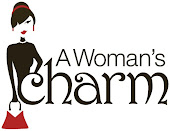What Are Spider Veins?
Spider veins are small, thin capillaries that lie close to the surface of the skin. They are connected to a larger venous system, though they are not an essential part of it since they do not actually carry blood to the heart. While spider veins and flushed skin don't usually indicate
a major medical problem, most people would be happy to be rid of them. Unfortunately, spider veins won't disappear on their own, but advanced treatment is available to easily and safely remove them.
a major medical problem, most people would be happy to be rid of them. Unfortunately, spider veins won't disappear on their own, but advanced treatment is available to easily and safely remove them.
How Do Spider Veins Form?
Spider veins form when excess blood backs up in the blood stream. The excess blood creates pressure. The body releases the pressure by creating new veins on the skin's surface. The primary problem with spider veins is their unsightly appearance, but they can also cause aching, swelling, burning.
People within certain ethic groups are often more prone to spider veins, so heredity certainly plays a role. So can hormone therapy and oral contraceptives. Ageing related to sun damage
is also a big contributor. Ultraviolet light exposure is one of the more controllable factors in preventing facial veins, so avoiding the sun and using sunscreen is recommended. Facial veins and flushed skin are also commonly seen with rosacea, a chronic but treatable skin condition.
is also a big contributor. Ultraviolet light exposure is one of the more controllable factors in preventing facial veins, so avoiding the sun and using sunscreen is recommended. Facial veins and flushed skin are also commonly seen with rosacea, a chronic but treatable skin condition.
What Treatments Are Available?
Intense Pulsed Light Therapy: Also known as IPL or Photo Facial, this treatment offers
superior results when treating a whole network of tiny facial veins and the associated flushed look of the skin. There is usually no downtime with this procedure, and it typically requires
4 to 6 treatments. People with mild to severe rosacea really appreciate the outcome, noting an 80 to 90% overall reduction in facial redness.
Intense Pulsed Light Therapy: Also known as IPL or Photo Facial, this treatment offers
superior results when treating a whole network of tiny facial veins and the associated flushed look of the skin. There is usually no downtime with this procedure, and it typically requires
4 to 6 treatments. People with mild to severe rosacea really appreciate the outcome, noting an 80 to 90% overall reduction in facial redness.
How Long Do Results Last?
Once a vein or vessel has been destroyed, it will not return. However the treatment is not able
to stop the development of more veins in the future. Patients who have had laser or IPL could certainly see new facial veins over time, especially those who continue on with unprotected
sun exposure. Sunscreen is recommended for everyone, and it can be preventative for people prone to facial veins.
Once a vein or vessel has been destroyed, it will not return. However the treatment is not able
to stop the development of more veins in the future. Patients who have had laser or IPL could certainly see new facial veins over time, especially those who continue on with unprotected
sun exposure. Sunscreen is recommended for everyone, and it can be preventative for people prone to facial veins.




